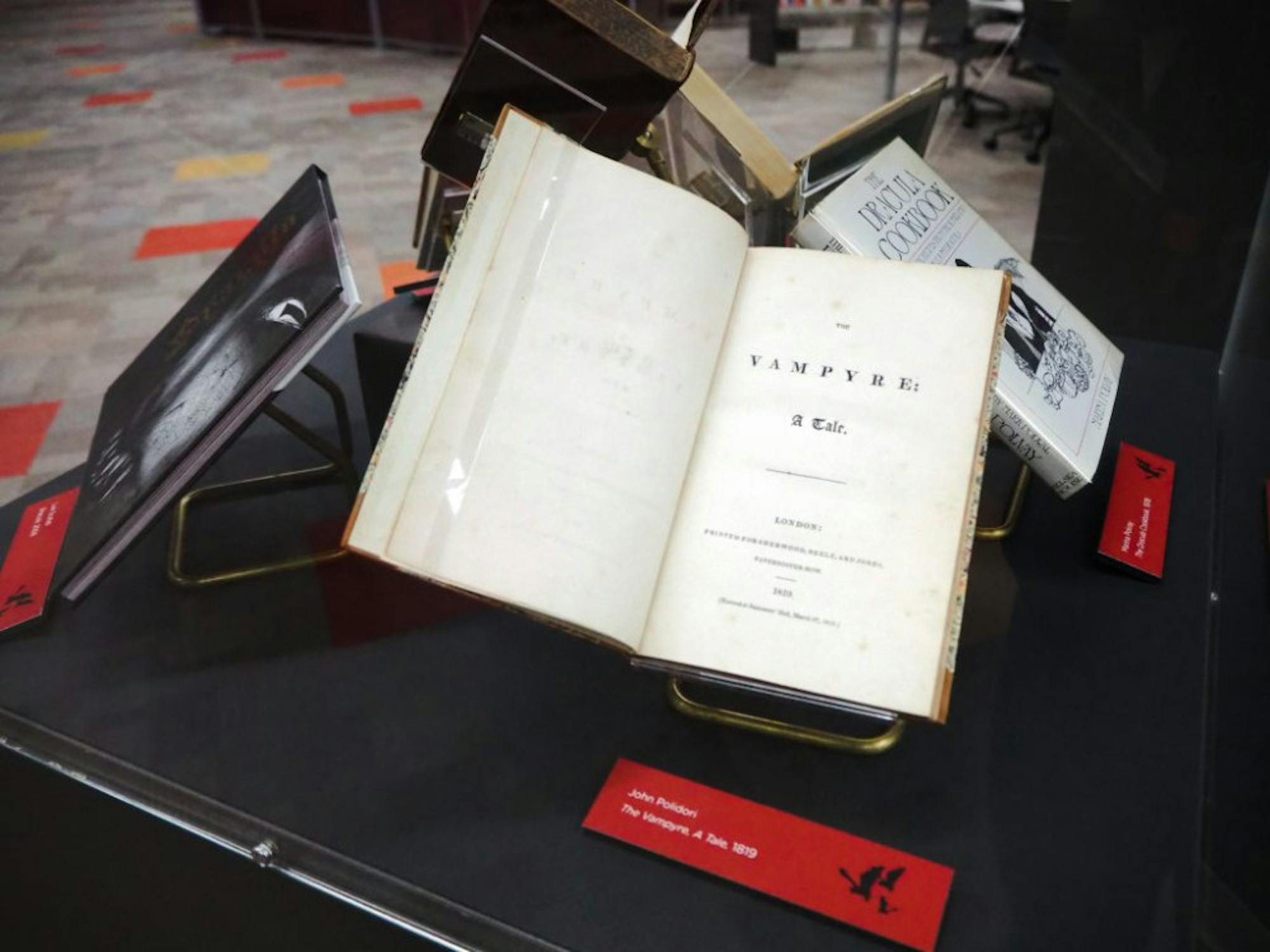Emory University’s Stuart A. Rose Manuscript, Archives, and Rare Book Library recently acquired what is considered to be the most comprehensive collection of Bram Stoker materials in the world to date.
The collection features around 1,500 documents, including books, manuscripts, playbills, copies, correspondence, photographs and first edition translations of “Dracula.” Notable highlights include Stoker’s research notes on vampirism, novels in which Stoker penned personalized inscriptions and a manuscript of Stoker’s “The Lady of the Shroud,” which was donated by Emory alumnus and benefactor Stuart Rose (76B).
During the pandemic, Emory acquired the collection from John Moore, a Dublin collector who spent over 40 years accumulating Stoker materials from Ebay, used bookstores and British and American book dealers.

“It’s really admirable and amazing that John Moore was not close-minded at all about the things that he could collect that would expand this collection and be of interest to people,” said Rare Book Librarian Beth Shoemaker.
The collection also includes graphic novels and comic books written in the 1990s. Shoemaker said that the collection continues Stoker’s legacy of wanting a wide readership and writing for common people.
Although most of the material was previously in private hands, Director of the Rose Library Jennifer Gunter King said that the University’s collection is completely accessible to the public and that she hopes that researchers will utilize it.
There are no copyright restrictions in place due to the age of the materials, so University librarians plan to digitize the entire collection and have already begun the uploading process. Shoemaker said courses in the spring semester plan to employ the collection in their material.
“I think it’s going to be a really well-used collection,” Shoemaker said. “It’s really wonderful that the Emory community is really embracing these materials.”
One such course is “The Monster in the Library: The Stoker Archives and Dracula,” which will center around the Stoker archive and be taught by Professor of English Sheila Cavanagh and Senior Lecturer Joonna Trapp.
“The course is really about bringing students to the archives,” Cavanagh said. “The students will be introducing the archive to Emory and to the broader community because they’ll be the first people to be in there to find what’s there to be found.”

Stoker is best recognized as the author of “Dracula,” since little was known about his other works and his personal life. Modern vampirism in popular culture is drastically different from Stoker’s detailed writings on vampirism.
“There’s a lot of misconceptions about Stoker and the novel that I hope the archive will help to settle,” Trapp said. “The popular imagination has been fed a lot of things that just aren’t true. There’s a lot of misinformation in documentaries and other places. I hope this [collection] will ground things in actual facts.”
Trapp said some scholars have already consulted the collection before publishing their scholarship on Stoker. She added that Emory students “may see an uptick in gothic works” in the classroom and, more specifically, the collection “could feed our Irish literature studies” by adding to the prestige the Rose Library already holds for its highly regarded Irish collections. King said that the Stoker archive provides a fresh perspective on Irish writers and will enhance Irish studies at Emory.
Associate Professor of Film and Media Studies Michele Schreiber said that the collection will provide opportunities for multiple departments by allowing students to directly engage with authentic primary resources.
“It’ll be really impactful for classes that are focused on horror cinema specifically,” Schrieber said. “It gives students the opportunity to do primary research in an in-depth way that they otherwise might not have the ability to do.”
The Stoker collection is now available to the public in the Rose Library. Book requests are available through the Emory Libraries catalog and researchers can register for viewing appointments.
“This collection creates change by inviting our current community to understand Stoker as an author and, by doing so, understand that each of us are authors,” King said. “We’re thinking, we’re writing and [we] have the potential to be as influential a writer as Stoker.”






